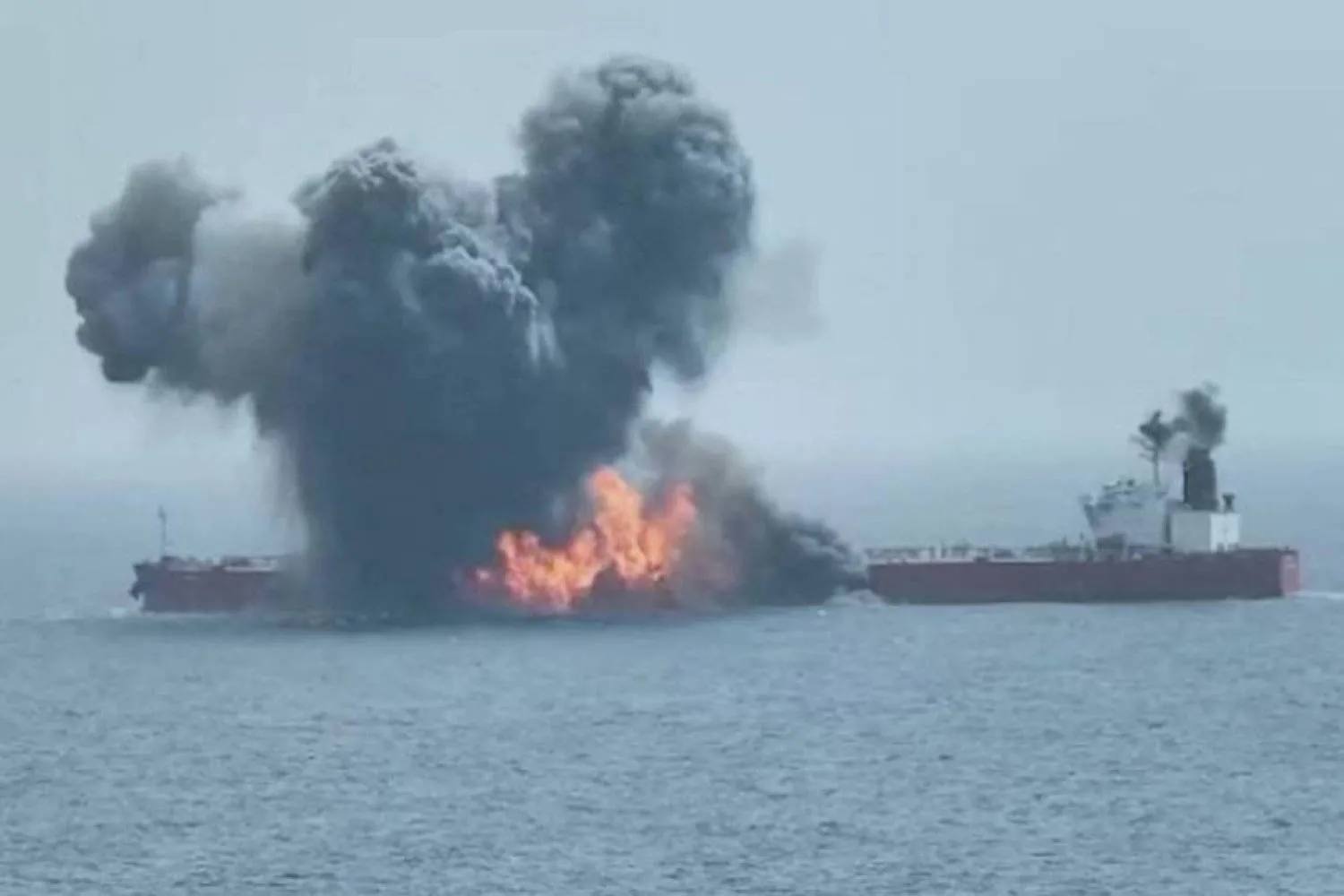A Greek-flagged oil tanker traveling through the Red Sea came under repeated attack Wednesday, leaving the vessel “not under command” and drifting ablaze after an assault suspected to have been carried out by Yemen's Houthi militants, the British military said.
The attack, the most serious in the Red Sea in weeks, comes during a monthslong campaign by Houthis targeting ships over the Israel-Hamas war in the Gaza Strip that has disrupted a trade route through which $1 trillion in cargo typically passes each year.
In the attack, men on small boats first opened fire with small arms about 140 kilometers (90 miles) west of the Houthi-held Yemeni port city of Hodeidah, the British military's United Kingdom Maritime Trade Operations center said.
Four projectiles also hit the ship, it added. It wasn't immediately clear if that meant drones or missiles.
“The vessel reports being not under command,” the UKMTO said, likely meaning it lost all power. “No casualties reported.”
Later, the UKMTO warned the ship was drifting while on fire in the Red Sea.
The Greek shipping ministry later identified the vessel as the tanker Sounion, which had 25 crew members on board at the time of the attack as it traveled from Iraq to Cyprus.
Later Wednesday, the UKMTO reported a second ship being targeted in the Gulf of Aden by three explosions that occurred in the water close to it, though they caused no damage.
The Houthis did not immediately claim responsibility for the attacks, though it can take them hours or even days before they acknowledge their assaults. However, they did acknowledge US airstrikes in Hodeidah, something the American military's Central Command said destroyed a Houthi surface-to-air missile and radar system.
The Houthis have targeted more than 80 vessels with missiles and drones since the war in Gaza started in October. They seized one vessel and sank two in the campaign that also killed four sailors.
Other missiles and drones have either been intercepted by a US-led coalition in the Red Sea or failed to reach their targets.
The Houthis maintain that they target ships linked to Israel, the United States or the UK to force an end to Israel’s war against Hamas in Gaza. However, many of the ships attacked have little or no connection to the conflict, including some bound for Iran.
The Houthis have also launched drones and missiles toward Israel, including an attack on July 19 that killed one person and wounded 10 others in Tel Aviv. Israel responded the next day with airstrikes on Hodeidah that hit fuel depots and electrical stations, killing and wounding a number of people, the Houthis said.
After the strikes, the Houthis paused their attacks until Aug. 3, when they hit a Liberian-flagged container ship traveling through the Gulf of Aden. A Liberian-flagged oil tanker came under a particularly intense series of attacks beginning Aug. 8, likely carried out by the Houthis. A similar attack happened Aug. 13 as well.
The last three recent attacks, including Wednesday's, targeted vessels associated with Delta Tankers, a Greek company.
As Iran threatens to retaliate against Israel over the assassination of Hamas leader Ismail Haniyeh in Tehran, the US military told the USS Abraham Lincoln aircraft carrier strike group to sail more quickly to the area. Early Thursday, the US military's Central Command said the Lincoln had reached the Mideast's waters, without elaborating.









